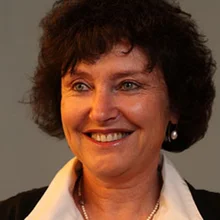
The winners of the 2019 Central Banking Awards

The Central Banking Awards, now in their sixth year, recognise outstanding performances from across the community, by both central banks and the market practitioners who support them.
The Monetary Authority of Singapore was this year’s overall winner, taking the prize for central bank of the year. The MAS has demonstrated its strengths by not only maintaining monetary and financial stability over the year in review, but also establishing itself as a pioneer of technology and financial research.
“We would not have been able to achieve what we have without the strong partnership and support of the financial industry in Singapore, which has maintained high standards of prudence while pushing the boundaries of innovation,” says MAS managing director Ravi Menon.

Central Banking’s governor of the year was Karnit Flug, who completed her five-year term in 2018 having seen several of her major initiatives come to fruition. She fought for and ultimately delivered the creation of a financial stability committee, headed by the Bank of Israel governor, and achieved important banking reforms that at some times proved highly controversial.
Flug says the period was “very challenging” and “satisfying”.
“We, at the bank, have many achievements to be proud of, and these would not have been possible without the co-operation of many partners in the public and private sectors, both in Israel and abroad,” she says.
Flug notes the task of achieving stability often requires “unpopular measures, which sometimes create frictions with the political system”.
China’s reformist governor
Zhou Xiaochuan received the award for lifetime achievement, having spent 15 eventful years at the head of the People’s Bank of China, the longest any person has held the role.

Zhou’s leadership has won him plaudits at home and abroad. International Monetary Fund managing director Christine Lagarde tells Central Banking Zhou “successfully steered” monetary policy “while structural transformation was in full swing”.
Zhou, who stepped down as PBoC governor in 2018, was instrumental in delivering bold reforms to the central bank and steering the institution through some volatile times. In recent years he has been a key player in China’s move toward liberalisation of the exchange rate and interest rates, helping to drive the rapid internationalisation of the renminbi.
“Zhou has a great reputation among his colleagues and superiors for being very open minded, clear in his analysis, and a great attractor of talent, open to bringing home many US and foreign-trained economists and bankers,” says Andrew Sheng, a former deputy chief executive of the Hong Kong Monetary Authority.
Central bank excellence
The Bank of Mexico won reserve manager of the year, having successfully modified its strategic asset allocation process to better achieve its liquidity, capital preservation and return goals.
Governor Alejandro Díaz de León said financial markets were posing “unprecedented challenges” to reserve managers. “In this environment, our strategic asset allocation methodologies needed to become more forward-looking, and our decision-making needed to rely on information extracted, not from historical data, but from current market prices and expectations,” he said.
The Reserve Bank of New Zealand won this year’s initiative award for its innovative financial strength dashboard. By revealing key metrics on the banking sector in a visual format that can be taken in at a glance, the central bank has hit on a simple method of boosting discipline among banks.
“Awareness among consumers and investors is an important aspect of ensuring a sound financial system,” said governor Adrian Orr. “Our financial strength dashboard is designed to make access to, and understanding of, New Zealand banks’ financial position easy and relevant.”
Warren Coats won Central Banking’s inaugural award for capacity building, having helped central banks across the world rebuild following war and unrest. His technical assistance missions included Bulgaria, Kazakhstan, Kyrgyzstan, Moldova and Slovakia, and he worked post-conflict at central banks in Bosnia and Herzegovina, Croatia, Serbia, Afghanistan, Iraq and South Sudan.
“I am grateful to the IMF and the wonderful colleagues I worked with for these opportunities, and now I am grateful to Central Banking for acknowledging this work with its outstanding contribution for capacity building award,” says Coats.
I am grateful to the IMF and the wonderful colleagues I worked with for these opportunities, and now I am grateful to Central Banking for acknowledging this work with its outstanding contribution for capacity building award
Warren Coats
The National Bank of Ukraine won the prize for transparency, having increased its openness as a central part of efforts to build trust in the aftermath of revolution and the conflict in the country’s eastern regions.
Governor Yakiv Smolii says: “Developing an open, transparent culture and working practices has been a priority for our team since our very first days in office, and we are delighted to see our efforts recognised with this award. Transparency and stakeholder dialogue play a vital part in achieving our objectives.”
The Federal Reserve Bank of St Louis was recognised for its work in financial inclusion, having led important work on financial education. “Financial literacy is of the utmost importance today,” said president James Bullard. “We know that educating the public about economic concepts can help make our communities financially stronger.”
The award for currency management went to the Bank of Israel, which has built a small but highly efficient currency department. “This prestigious award recognises the innovative work and significant achievements accomplished in recent years by our currency department,” said governor Amir Yaron.
The Reserve Bank of Australia took the prize for payments and market infrastructure development for its work on installing a new faster payments system. Governor Philip Lowe said: “The reserve bank collaborated with the Australian payments industry on a multi-year initiative to build the New Payments Platform, a major piece of infrastructure for our electronic payments system. Today, it enables faster, easily addressed and data-enriched payments for Australian consumers and businesses.”
This year’s website award goes to Sveriges Riksbank, which overhauled its website for a clean look and easier navigation. The central bank has deployed interactive elements and a simpler interface to encourage better user engagement.
Riksbank governor Stefan Ingves says: “I am very happy and proud of the prize and our creative team. The Riksbank has a responsibility to communicate the changes we see and how we work towards solutions that are in the best interest of the general public. It is, therefore, very pleasing that our website, riksbank.se, is receiving this award.”
This year’s top central bank risk manager was the Saudi Arabian Monetary Authority, having delivered a radical change in behaviour, practices and procedures since overhauling its systems in 2015. Directors can now draw on real-time risk profiles to stay abreast of any major changes in risk positions. Risks that had previously been overlooked are now less likely to slip through the net.
The award for economics in central banking went to Greg Kaplan, Benjamin Moll and Gianluca Violante for their paper Monetary policy according to Hank. The work adds to the realism of core economic models by allowing for differences in households’ liquid and illiquid assets. In the process, the authors shed light on both policy transmission and the importance of inequality.
“There are two main takeaways from our research,” the authors say in a joint statement. “First, the transmission of monetary policy to the real economy depends crucially on the distribution of income, assets and liabilities across households. Second, central bank actions can impact these distributions and thus affect household inequality.”
Market leaders
Among the private sector winners, Vermeg took the prize for risk management technology. In 2018, the firm deployed the collateral management module of its Megara system to four major central banks. In the past 12 months, the firm also won a contract to deliver technology for the Eurosystem’s Collateral Management System.
Badreddine Ouali, chief executive of Vermeg, says: “We are constantly developing and innovating our products across the board, and are pleased to be recognised for this in the industry and for our work in the central banking space.”
The World Gold Council won the award for professional services initiative of the year, having developed a common global accounting standard for monetary gold, the first of its kind.
“We are encouraged that the importance of providing a common framework that will help monetary authorities recognise and account for monetary gold in an appropriate and consistent manner has been acknowledged, as this is a key issue for many central banks themselves,” says Natalie Dempster, head of central banks at the World Gold Council.
We are constantly developing and innovating our products across the board, and are pleased to be recognised for this in the industry and for our work in the central banking space
Badreddine Ouali, Vermeg
Deloitte lifted the prize for advisory services. Amid an impressive roster of central bank clients, in the past year the firm supported the Bank of Canada in developing a new strategy, helped launch a fintech hub in Saudi Arabia, and contributed to a blockchain-based trade finance system in Hong Kong.
“Deloitte’s success is the result of practitioners’ technical and regulatory knowledge, combined with Deloitte’s deep understanding of the central banking sector and the ability to provide a wide range of services and innovative solutions to meet clients’ needs,” says Karen Grieve, global operations leader for sovereign financial institutions.
Ion Treasury won in the field of treasury systems, having beaten many competitors to supply the European Central Bank’s new treasury management system. The firm merged with Openlink in the past year to continue its dominance of the sector.
Vizor Software won this year’s prize for data services, for its work in developing a flexible “self-service” platform for financial sector supervisors to gather data. The firm saw repeat business from two major clients, including the Bank of England.
“Winning the data services award is a testimony to the success our customers have achieved with major supervision system upgrades over the last year,” says chief executive Conor Crowley. “These projects show the value of higher-quality data and the significant cost savings achieved with each new or modified data collection.”

De La Rue was awarded the currency services award. The past year saw the firm make major investments and participate in the launch of more than 20 banknote denominations worldwide.
“We have delivered innovative new services, launched 20 currency designs and six features, as well as increasing our polymer offering,” said Martin Sutherland, chief executive of De La Rue. “By continuing to invest in the business, I believe we will be at the forefront of innovation for years to come and we have an exciting future ahead.”
Meanwhile, Giesecke+Devrient won an award for currency innovation for its app, which helps support public confidence in banknotes by giving people a means of interacting with digital representations of the national currency.
“We recognise the responsibility of empowering the general public to understand the advanced banknote features, and see how beautifully the features work, and how visual authentication can be used to stop counterfeits at the first pass,” said Giesecke+Devrient currency technology chief executive Wolfram Seidemann. “We are delighted to use the new technologies and to be part of this essential public information process.”
The financial market infrastructure award goes to ParFX. In the wake of several scandals around poor market behaviour, the firm worked to hardwire technical “speed bumps” into its systems, helping to ensure “fairness, equality and transparency”.
Central banks have played a prominent role in promoting best practice and improving standards in the FX industry
Roger Rutherford, ParFX
Roger Rutherford, chief operating officer at ParFX, said: “We are very pleased that our efforts to increase fairness, equality and transparency in the FX market have been recognised by Central Banking. Central banks have played a prominent role in promoting best practice and improving standards in the FX industry, so this is a strong validation of our work.”
BNP Paribas Asset Management scooped the prize for innovation in reserve management, having helped a major central bank achieve greater flexibility in its asset allocations, while launching a multi-factor credit product.
State Street Global Advisors won the award for asset manager of the year. Its official institutions group demonstrated the value of its global presence and thought leadership activities in a wide range of markets.
SSGA chief executive Cyrus Taraporevala said the firm was “deepening our skill and knowledge transfers offering, beyond pure investment activities”. Elsewhere, a trio of banks claimed awards for aspects of their work with central banks.
HSBC took the prize for global markets, having proven its role as a trusted counterparty to central banks. The bank helped institutions seek out returns amid considerable market turbulence in the past year, and demonstrated the value of its strong links to China as the renminbi has grown in importance.
Citi won the award for custody initiative of the year. Counting the world’s largest sovereign wealth fund among its clients, the firm added a new data platform in the past year, Citi Velocity, to provide faster and more precise information to its customers.
Deutsche Bank was this year’s winner of the specialised lending award. The firm has provided securities lending services to five Eurosystem monetary authorities involved in the European Central Bank’s quantitative easing programme, offering essential trading, risk, operations, compliance, legal and reporting infrastructure.
Only users who have a paid subscription or are part of a corporate subscription are able to print or copy content.
To access these options, along with all other subscription benefits, please contact info@centralbanking.com or view our subscription options here: www.centralbanking.com/subscriptions
You are currently unable to print this content. Please contact info@centralbanking.com to find out more.
You are currently unable to copy this content. Please contact info@centralbanking.com to find out more.
Copyright Infopro Digital Limited. All rights reserved.
As outlined in our terms and conditions, https://www.infopro-digital.com/terms-and-conditions/subscriptions/ (point 2.4), printing is limited to a single copy.
If you would like to purchase additional rights please email info@centralbanking.com
Copyright Infopro Digital Limited. All rights reserved.
You may share this content using our article tools. As outlined in our terms and conditions, https://www.infopro-digital.com/terms-and-conditions/subscriptions/ (clause 2.4), an Authorised User may only make one copy of the materials for their own personal use. You must also comply with the restrictions in clause 2.5.
If you would like to purchase additional rights please email info@centralbanking.com




